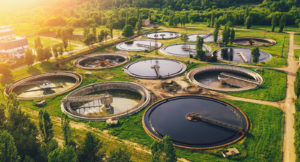Environmental Engineering

TRYENGINEERING CAREER PATHWAYS
Environmental Engineering
Environmental engineers have a direct impact on the health of the earth and are concerned with local and worldwide environmental issues. They use the principles of biology and chemistry to develop solutions to environmental problems. They are involved in water and air pollution control, recycling, waste disposal, and public health issues.
Some may study and attempt to minimize the effects of acid rain, global warming, automobile emissions, and ozone depletion. They also may be involved in the protection of wildlife. Many environmental engineers work as consultants, helping their clients to comply with regulations, prevent environmental damage, and clean up hazardous sites.
What makes it unique?
Often the work of environmental engineers can impact the entire globe and certainly often crosses country borders. Consider air pollution control efforts that can improve the life of humans, wildlife, and the earth in large regions of the globe.
 Degree Connections
Degree Connections
The following are examples of some accredited degrees leading to a career in environmental engineering:
- Environmental Engineering
- Environmental Engineering Technology
- Chemical Engineering
- Bioengineering
- Civil Engineering
- Engineering Management
- Forest Engineering
Search our global database of accredited engineering programs.
Want to learn more?
Click on the blue tabs to explore the field in more detail and learn about preparation and employment, the green tabs to be inspired by people working in environmental engineering and how they impact the world, and the orange tabs for ideas on how to learn more and you can get involved with activities, camps, and competitions!
Explore

Environmental engineers develop ways to solve problems related to the environment. They are involved in both local and global environmental protection efforts such as air and water pollution control, recycling, and waste disposal.
Depending on their work focus, their job duties might include collecting soil or groundwater samples and testing them for contamination; designing municipal sewage and industrial wastewater systems; analyzing scientific data; researching controversial projects; and performing quality control checks. They could provide legal or financial consulting services related to environmental processes, equipment, or issues. They may study and attempt to minimize the effects of large-scale problems such as acid rain, global warming, and ozone depletion.
They will coordinate with other types of engineers and scientists to solve large scale problems. Teamwork is almost always part of the daily life of any engineer, but particularly key with environmental engineers who often are working alongside civil, mechanical and other engineering specialties.
Controlling Air Pollution:
The air is important to our health and that of our planet. Some environmental engineers focus on air quality engineering. Those that do play a huge role in determining how much toxic air pollution a facility could produce, even with the best possible environmental controls in place. They also design and implement solutions to help companies not only comply with regulations, but develop the best approach to manufacturing products or offering services to limit negative impact on the environment.
Historically, there have been many notable air pollution challenges which killed large numbers of people. Examples include the Donora smog disaster in 1948 and the London’s Great Smog of 1952. But air pollution has been tracked back as far as 1157! And, over the years, engineers and scientists have worked diligently to identify causes and develop solutions. This is still a work in progress. We have come a long way in removing pollutants from the air, and developing regulations to make sure that companies and governments comply as they develop and update manufacturing and other facilities, but there is more work to do. Environmental engineers play a big role in helping improve our air and identify solutions that keep the planet more healthy.
Learn more about some of the contributors to air pollution around the world in the video to the right from the World Health Organization.
More details:

Environmental Engineers work in many industries, including chemical, pharmaceutical, water/wastewater treatment, mining, and manufacturing, and can be involved in hazardous waste remediation, air pollution control, facilities planning, and environmental consulting.
As the trend of regulation changes from pollution cleanup to prevention, environmental engineers must also focus on the impact of the environment on public health. Because environmental protection regulations constantly change, environmental engineers must keep abreast of environmental issues to ensure steady employment. Political factors also have an impact on the job outlook for environmental engineering employment opportunities. Different countries and different leaders may have looser environmental regulations, which can reduce job opportunities, while stricter regulations would enhance them.
There are very few manufacturing businesses that don’t employ environmental engineers, and they are employed by many government agencies as well. Some environmental engineers work for consulting firms, as they are frequently brought into a project as an independent advisor to confirm that regulations are being met. The following list is very short and just meant to give an example of the types of businesses around the world that employ environmental engineers:

For most engineering careers:
- a bachelor’s degree is required
- a master’s degree may be recommended for those specializing or interested in management
- students may also start with a related associate degree and then move on to a bachelor’s when they have settled on a degree path.
- many students are required to participate in a co-op program while at university to gain real world experience in their chosen field.
- education doesn’t really stop…engineers need to stay current as technology changes and materials and processes improve over time.
- many professional societies offer certificates and coursework to support continuing education for their members.
It is important to select an engineering degree that has been accredited to meet basic standards. Find out more and browse TryEngineering’s global database of accredited engineering and computing programs.
For environmental engineering specifically, courses will include classroom, laboratory, and field studies. In different countries there are licensing regulations for engineers and possible additional coursework if you choose an area of specialization.
Be Inspired
One of the best ways to explore what it might be like to work in environmental engineering is to learn about people currently working in the field, and those who have had an historical impact.
For example, watch the video interview of Tamar Losleben, who is an environmental engineer specializing on water treatment. She explains her daily work, why it matters to her, and how she is impacting the world.
Marielle Thillet, is an environmental engineer working in the development of natural gas. She works to protect the environment and help prevent pollution. She often works offshore. Her advice is to “go for it and don’t be worrying about following your friend…find a job you really like because that’s what matters.
And, there are many notable civil engineers who have left their marks on history, including Abel Wolmon, who contributed to the distribution of safe municipal water supplies globally, and Ellen Henrietta Swallow Richards who was the first woman admitted to the Massachusetts Institute of Technology and contributed to the development of sanitary engineering!
Turning wastewater into usable water is a global challenge met by teams of engineers. Everywhere wastewater is created there is also a need to treat it so it doesn’t impact the environment negatively.
Wastewater treatment involves the removal of impurities from wastewater, or sewers, before they can reach and contaminate aquifers or natural water bodies, such as lakes, rivers, and oceans. The process involves many different engineering disciplines with environmental engineers playing a large role in advising on standards and testing results. In addition to adhering to industry regulations wastewater treatment projects are location dependent in some cases and so each solution is unique to the challenge of the local area.
The US Environmental Protection Agency offers a basic guide to how wastewater treatment works. And you can find out more by exploring how wastewater treatment plants work in the video to the right.
Get Involved
Dig deeper into topics related to topics that interest you! We’ve arranged a few links below:

Explore:
- Careers for Environmental Engineering Graduates
- Air Pollution, World Health Organization
- Global Status of Wastewater
- TryEngineering News Blog
Watch:
Try it Out:
- Play some games that involve engineering!
- Explore AiChE K-12 Modules and activities
- Try one of the TryEngineering lessons that focus on civil engineering:

Clubs, competitions, and camps are some of the best ways to explore a career path and put your skills to the test in a friendly-competitive environment.
Clubs:
- Many universities offer green campus initiatives or environmental clubs, and some may be available for pre university students to join in as well. For example, the Green Campus Enterprise is an organization of students working to make the Michigan Tech campus more sustainable through both low and high profile projects.
- Project Green Schools is a project-based learning and community service program to help develop environmental leaders.
Competitions:
- Water Environment Federation Student Design Competition promotes “real world” design experience for students interested in pursuing an education and/or career in the water and wastewater fields.
- Young Reporters for the Environment encourages university and pre-university students from around the world to develop stories related to the environment.
Camps:
- TryEngineering Summer Institute: Attend the TryEngineering Summer Institute to further your core engineering skills.
- Sustainable Summer is an environmental leadership program for pre-university students in various locations.
- Environmental Engineering and Sustainability Camp, University of Illinois, for pre-university students.
- Many universities offer summer engineering experiences. Reach out to your local university’s engineering department to see what they offer.
Did you know you can explore environmental engineering in your community? Investigate how wastewater is managed in your area.

- Did you know that globally, it is likely that over 80% of wastewater is released to the environment without adequate treatment?
- Where does the wastewater from your home go? What happens to it to prevent it from running into local streams or farm fields? How old is the system used in your area? Have there been changes over the years to the process to make it more efficient or to solve problems that may have arisen?
- Are there homes in your area which use a septic tank? How does that work to remove waste from the water before it is returned to the soil?
- Are there manufacturing businesses that use water in production in your area? What happens to the water they use? Do they process it themselves or is wastewater treatment done by another organization?
- Pick another country in the world and explore how wastewater is handled there. How is it different than your local community?
Find out more:
- Explore the United Nations’ fact sheet on water quality and wastewater challenges around the world.
- Determine where the global challenges to wastewater treatment are at the Global Status of Wastewater
- How does a septic tank work?
Be sure to reach out to professional societies focused on environmental engineering where you live. Not all will offer membership to pre-university students, but most offer groups for university students, and certainly offer online resources to help you explore the field. Several professional societies, focusing on civil and mechanical engineering, for example, will have divisions or groups dedicated to environmental engineering. A few examples of environmental engineering-specific groups include:

- American Academy of Environmental Engineers and Scientists, US
- Asia-Pacific Chemical, Biological and Environmental Engineering Society
- Association pour le développement des Sciences et Techniques de l’Environnement, France
- Confederation of European Environmental Engineering Societies
- Hong Kong Chemical, Biological & Environmental Engineering Society
- Water Environment Federation
Some resources on this page are provided or adapted from the US Bureau of Labor Statistics and the Career Cornerstone Center.























